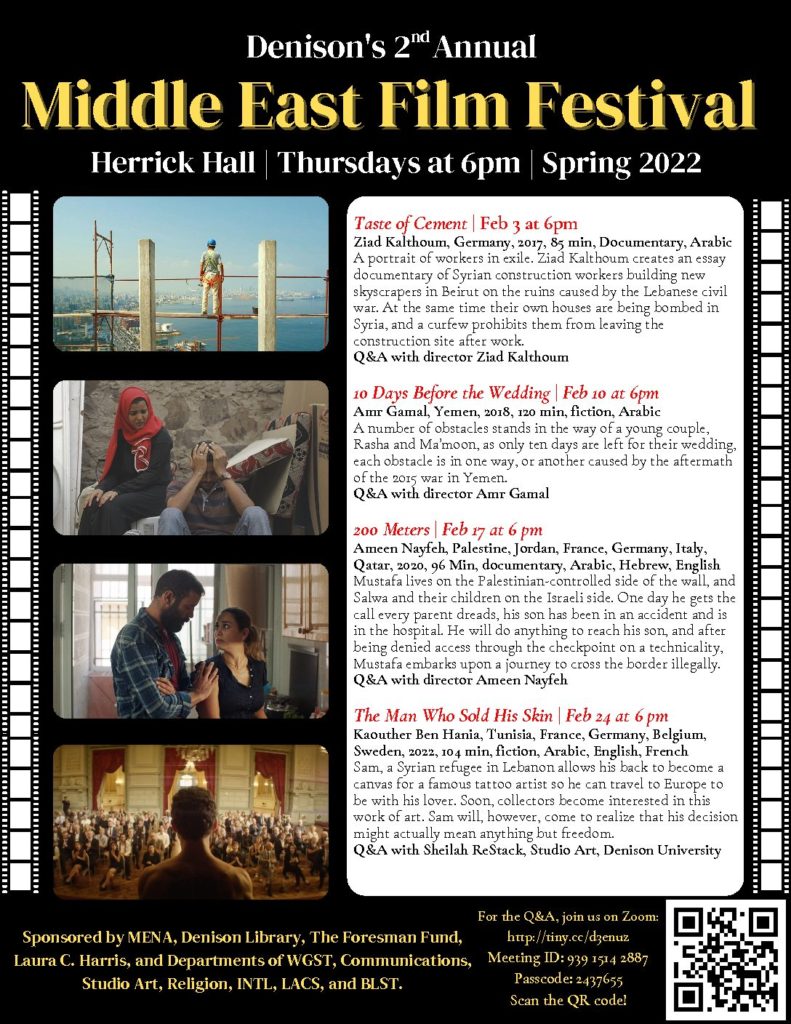ALI IRMAN, Special to the Denisonian—Now in its second year, Denison’s Middle East Film Festival is set to return with an incredible and intriguing selection of films.
The festival will kick off with the screening of Ziad Kalthoum’s Taste of Cement (2017), an intimate look at the life of Syrian construction workers exiled in Lebanon. The last film in the lineup, The Man Who Sold His Skin, by the Tunisian director Kaouther Ben Hania, was nominated for the best international feature at the 2021 Oscars, and is a clever portrayal of the seemingly disparate worlds of elitist art circles and refugees in Europe.
Along with the screenings, there will also be the opportunity to hear directly from the makers of these films in a Q&A session. Three of the film directors, Ziad Kalthoum, Amr Gamal, Ameen Nayfeh, as well as Studio Art Professor Sheilah ReStack will lead the discussion following the screening of each film.
The screenings will take place every Thursday during the month of February at 6 p.m. in Herrick Hall followed by the Q&A session on zoom (access at https://tinyurl.com/3ttu7zt3 or vis zoom, ID: 939 1514 2887; passcode: 2437655).
The film festival is being organized by Dr. Isis Nusair, associate professor of Women and Gender Studies and International Studies. She is also founder of the Human Rights Film Festival organized by International Studies at Denison in 2006. Dr. Nusair hopes that the films will challenge “knowledge about the MENA region [that] is oftentimes misconstrued and filtered through Islamophobic, colonialist and Orientalist eyes. Engaging with these films will offer our students a first hand opportunity at thinking more critically about the region and its people.”
Through films like 10 Days Before the Wedding, the first Yemeni-made film to open commercially about a couple who has to overcome many obstacles before their wedding, and 200 Metres, which looks into the everyday precarity that families face under Israeli occupation in Palestine, this year’s film festival offers a refreshing and timely look at some contemporary Middle Eastern cinema.
Through their depiction of intimate human relations and the mundane everydayness of life, these movies disrupt normative narratives around the Middle East; however, they do not shy away from posing difficult and pressing questions about displacement, migration, and the human cost of war.

